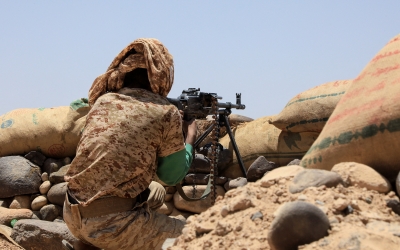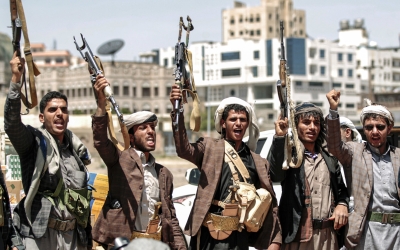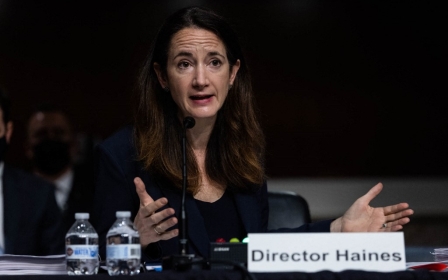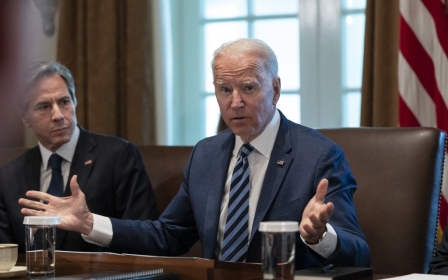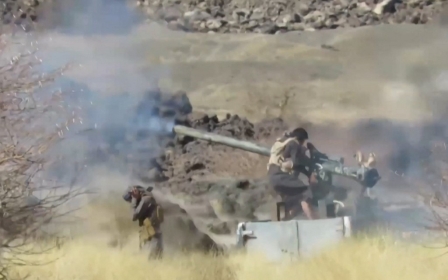US removes advanced missile defence systems from Saudi air base: Report
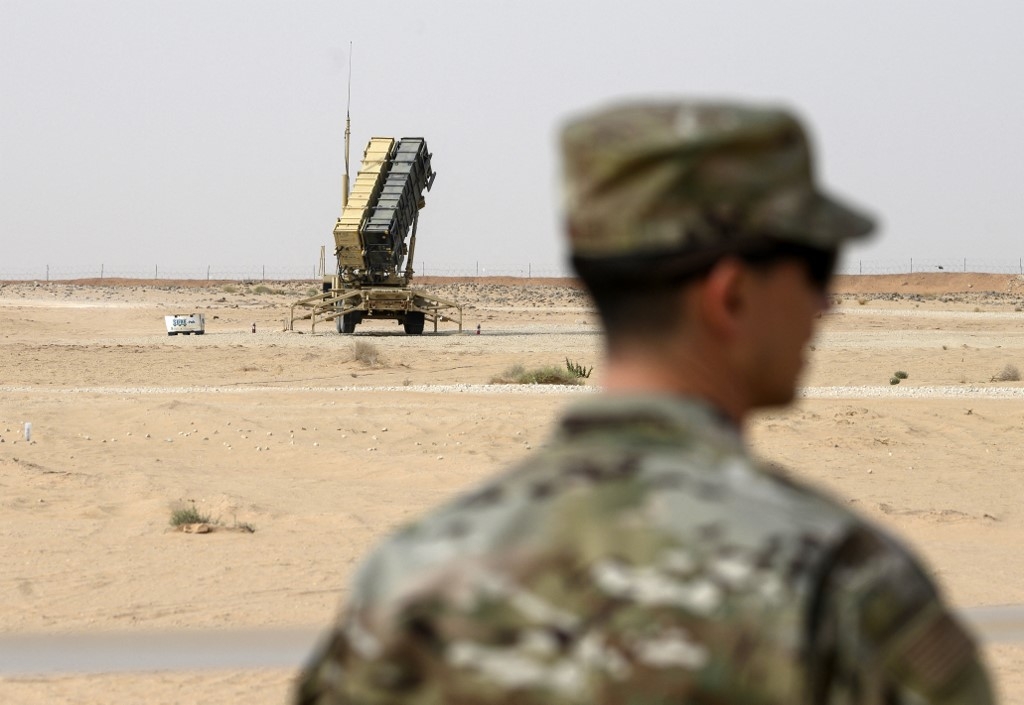
The United States has removed its most advanced missile defence systems from Saudi Arabia in recent weeks amid ongoing cross-border attacks levied by Yemen's Houthi movement, The Associated Press has reported.
The news agency analysed satellite footage of the Prince Sultan air base, which previously had a Terminal High Altitude Area Defense (THAAD) unit and a missile defence system in addition to Patriot missile batteries. The satellite imagery, taken by Plant Labs Inc, showed that as of the end of August several of those batteries were no longer at the air base.
New MEE newsletter: Jerusalem Dispatch
Sign up to get the latest insights and analysis on Israel-Palestine, alongside Turkey Unpacked and other MEE newsletters
A high-resolution image taken on Friday showed that the batteries' pads at the site remained empty, with no visible activity in the immediate area, AP reported.
Following enquiries from the news agency, Pentagon press secretary John Kirby confirmed that "certain air defence assets" had been moved. Still, he said the US maintained a "broad and deep" commitment to its allies in the region.
"The Defense Department continues to maintain tens of thousands of forces and a robust force posture in the Middle East representing some of our most advanced air power and maritime capabilities, in support of US national interests and our regional partnerships," Kirby told AP.
US Central Command, which oversees US military interests in the Middle East, did not return Middle East Eye's request for comment by the time of this article's publication. Tens of thousands of American forces remain across the Gulf as a counterweight to Iran and in support of other US interests.
'American commitment'
Pentagon spokeswoman Commander Jessica McNulty told reporters in June that plans were being laid to pull out "certain forces and capabilities" this year.
"The Secretary of Defense directed the commander of US Central Command to remove from the region this summer certain forces and capabilities, primarily air defense assets," McNulty said in a statement at the time.
The spokeswoman said that the moves would be made in "close coordination with host nations" and that it was "about maintaining some of our high demand, low density assets so they are ready for future requirements in the event of a contingency".
'The redeployment of some defence capabilities... from the region is carried out through common understanding'
- Saudi Defence Ministry
Meanwhile, the Saudi defence ministry told AP that the kingdom's relationship with the US remains "strong, longstanding and historic," even while acknowledging the withdrawal of the American missile defence systems. It said the Saudi military "is capable of defending its lands, seas and airspace, and protecting its people".
"The redeployment of some defence capabilities of the friendly United States of America from the region is carried out through common understanding and realignment of defence strategies as an attribute of operational deployment and disposition," the statement said.
Nevertheless, Saudi Prince Turki al-Faisal, the kingdom's former intelligence chief, told CNBC on Thursday that the kingdom needs "to be reassured about American commitment".
"That looks like, for example, not withdrawing Patriot missiles from Saudi Arabia at a time when Saudi Arabia is the victim of missile attacks and drone attacks - not just from Yemen, but from Iran," Prince Faisal said during the interview.
A Houthi drone attack injured eight people at Abha airport last week. Two people were also recently wounded when Saudi authorities intercepted a ballistic missile fired at its oil-rich eastern region in a separate attack.
US President Joe Biden has pushed to end the Yemen conflict since assuming office, with his administration announcing plans early on to pull offensive support for the Saudi-led military campaign fighting Houthi rebels.
Biden also announced at the start of his presidency that his administration was reviewing arms sales to Riyadh, and that the White House would deal directly with the 85-year-old King Salman, not the country's de-facto ruler, Crown Prince Mohammad bin Salman, also known by his initials MBS.
US Defense Secretary Lloyd Austin, on a tour of the Middle East in recent days, had been slated to go to Saudi Arabia, but the trip was cancelled due to what American officials referred to as scheduling problems.
Saudi Arabia at first declined to discuss why Austin's trip did not take place, but Saudi Prince Sattam bin Khalid Al Saud in a tweet on Friday said that the visit had been cancelled because Riyadh "does not accept orders from anyone and cooperates according to common interests and mutual respect".
Middle East Eye delivers independent and unrivalled coverage and analysis of the Middle East, North Africa and beyond. To learn more about republishing this content and the associated fees, please fill out this form. More about MEE can be found here.


